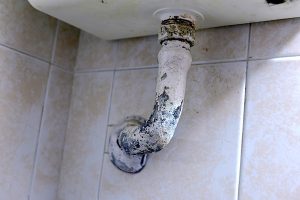The South Fayette water treatment plant was offline for a third day Friday as a consultant evaluates the treatment processes there, working on a solution to counteract high manganese levels in the raw water supply, according to Fayette County Commission Chairman Steve Brown.
Meanwhile, the consulting firm of CH2M Hill was also working to have raw water pumped into the Crosstown water treatment plant from the new Lake McIntosh reservoir as its manganese levels were lower than the county’s other raw water sources.
High manganese is blamed for a murky-colored water that is otherwise safe to drink, said Water System Director Tony Parrott.
Brown said CH2M Hill’s Stuart Jeffcoat is already “making significant progress” on the issue including adjustments to some of the equipment at the South Fayette treatment plant.
“He is reporting that everything they are doing seems to be having a positive impact and they hope to have the south plant back online in the short term and prevent Crosstown from having to be cut off,” Brown said late Friday morning.
Jeffcoat was called in following an emergency meeting of the Fayette County Commission Wednesday afternoon to authorize a $10,000 addendum to CH2M Hill’s consulting contract in reviewing the water system that dates back to the odor and taste problems that plagued the system for several weeks early this summer.
Based on CH2M Hill’s analysis of the water treatment process at both plants from the taste and odor problems, the county is facing a need to purchase new equipment, upgrade other equipment and make maintenance changes, Brown said.
“The sad part about it is we have quite a bit of work ahead of us and quite a bit of expense too,” Brown said.
The county is awaiting the final results from a sanitary survey conducted by the Georgia Environmental Protection Division a short time after the odor and taste problems. Those problems were ultimately attributed to high levels of organic carbon in raw water pumped from Starr’s Mill Pond in addition to problems with the treatment process at the Crosstown water treatment plant that have since been corrected.
While some irate citizens have called for “heads to roll” over the water problems, Brown said the time to evaluate such matters will come in the near future once the final sanitary survey comes in, along with other analytical takes on the health of the water treatment system.
“It may seem like we’re sitting on our hands, but we are ramping up to do some things,” Brown said.
Brown said he is not aware what has caused the spike in manganese levels in the raw water supply, but it’s possible the recent heavy rains caused pollution from chemicals such as fertilizer to have had an impact.










Leave a Comment
You must be logged in to post a comment.